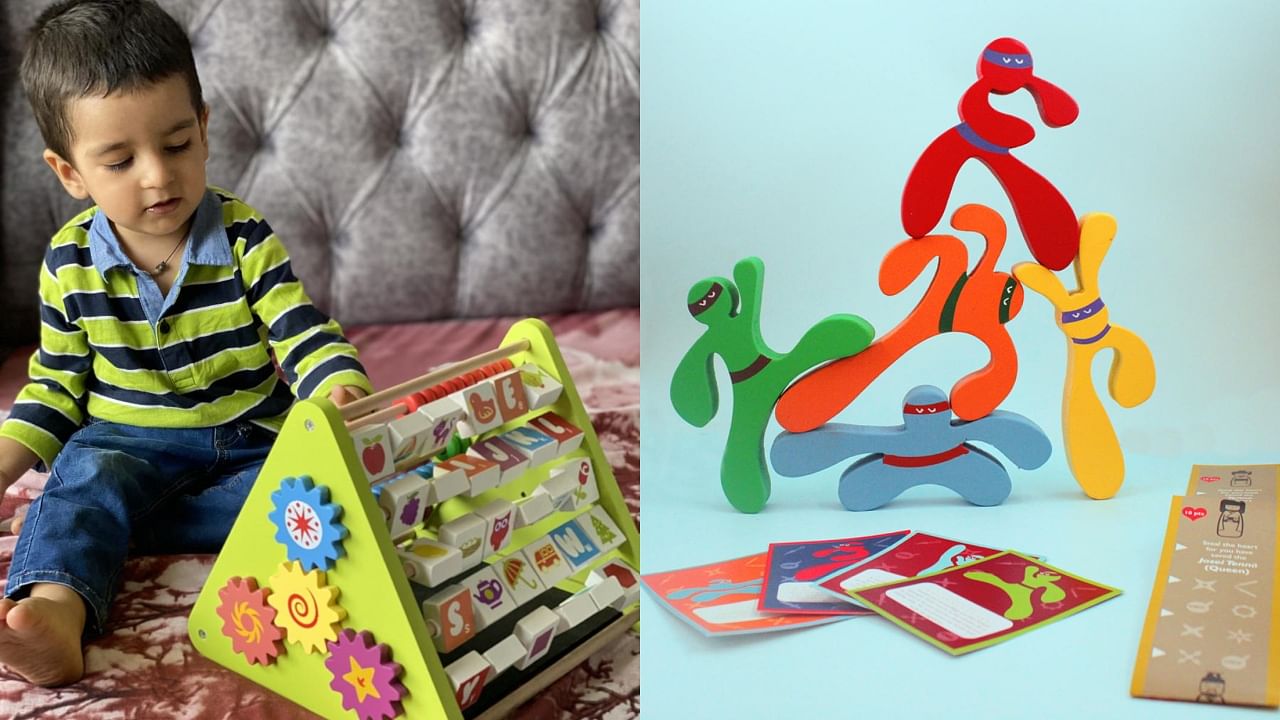

A Bengaluru toy startup was mentioned by Prime Minister Narendra Modi in his monthly ‘Mann Ki Baat’ radio address, for making eco-friendly toys.
While competing with other toy companies, designing sustainable and eco-friendly toys is not a child’s play, says Meeta Sharma Gupta, founder of Shumee.
She began the toy startup, based in Indiranagar, Bengaluru, after her stint with IBM Research labs in New York.
A struggle to find good quality and design in toys for her young boys, turned her an entrepreneur. “There were either cheap plastic toys from China or expensive imported toys. I found nothing which was sustainable for early learning and development of a child,” she says.
Safe and sustainable route
The brand started in 2016, has toys for newborns to six-year-olds.
Meeta wanted the toys to be good for children in every way — in their development through years of play and in quality of materials used to make them. “Kids in their early years put everything in their mouth, which is why each element used in the toy is safe and natural,” she says.
Materials for the toys are mostly locally sourced, including neem, mango and seesham wood. “In some cases, we use imported birchy plywood and rubber wood too,” she adds. Colours used are water based and lead free.
Along with children, the 45-year-old entrepreneur wanted the toys to be safe for the environment too.
Design challenges
However, designing toys out of sustainable material and making them last is a challenge. “The main challenge is to find the right materials. The foremost challenges in making wooden toys is getting the seasoning (the process of drying wood correctly in order to remove moisture) and finishing of the product right,” she says.
The cost of production is higher compared to plastic toys. “Since wood is the base material, there is a limitation on some design elements that can be used,” she adds.
The design process takes longer, as the team has to iterate on choice of wood to use, kind of joinery and decide on the paint process (according to wood’s properties colour absorbs differently). “No toy can have sharp edges and they have to be a certain size when designed for babies. Drop test (testing strength of the toy) is an important part,” says Meeta.
Various iterations
The brand has some hits in each age category. “Our activity triangle is popular among two-year-olds and older children. It has five activities in one toy, which allows a lot of engagement for toddlers and is value for money,” explains Meeta.
The startup’s rattles are popular, as they are made from neem wood, which is good for teething gums. “We did iterations in these, till we got all the aspects right. Like, we started with an elephant with a long trunk and a small tail, but it was not the right proportion when we checked safety parameters,” she recollects.
Ninjaki, a balancing toy, meant for older kids also went through many iterations. The whole concept was to balance seven ninjas, and getting its shape right while having balancing points was a challenge. “During production, we realised that painting on them was affecting friction, so we came up with a method to paint the parts but create friction only on the edges,” she shares.
New experiments include launch of 3D do-it-yourself kits for four year olds and older children. Made out of high quality paper, these are available in three different themes — farm, forest and circus. Shumee has also launched colouring books with organic crayons.
For details, visit shumee.in